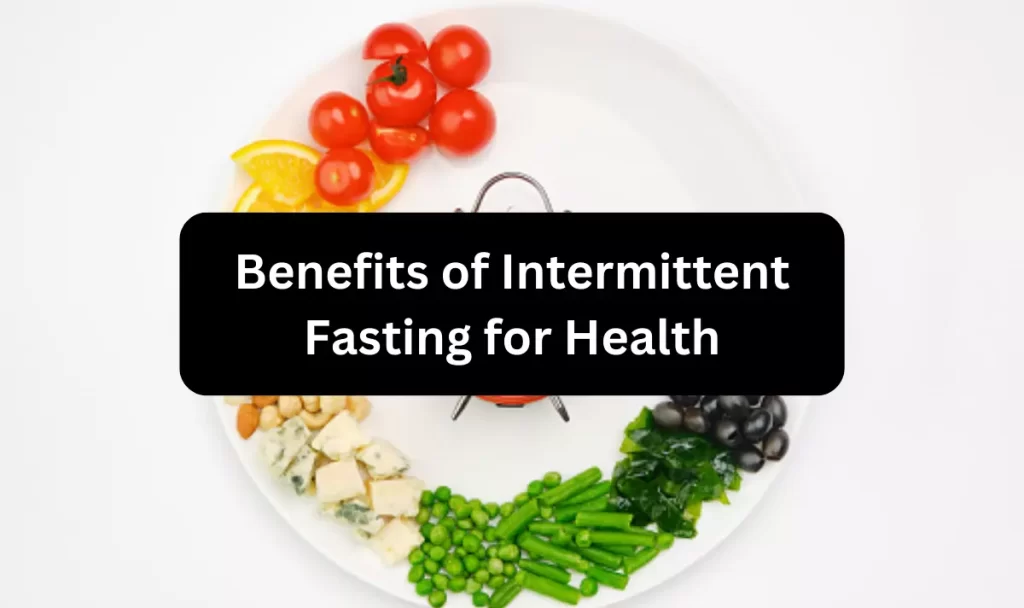
Intermittent fasting has gained significant popularity in recent years as a dietary approach that offers numerous health benefits. This eating pattern involves cycling between periods of fasting and eating, with various intermittent fasting methods available. In this article, we will explore the advantages of intermittent fasting for overall health and well-being.
Further reading suggestion for you: Superfoods for Boosting Immune System: Enhance Your Health Naturally
Contents
1. Boosts Weight Loss

Intermittent fasting can be an effective strategy for weight loss. By restricting the eating window and extending the fasting period, it helps create a calorie deficit, leading to reduced body weight. Studies have shown that intermittent fasting can promote fat burning and increase metabolism, making it an appealing option for individuals looking to shed excess pounds.
2. Improves Insulin Sensitivity
One of the key benefits of intermittent fasting is its positive impact on insulin sensitivity. Insulin is a hormone responsible for regulating blood sugar levels. By giving your body extended periods without food, intermittent fasting can help lower insulin levels and improve insulin sensitivity. This can be particularly beneficial for individuals at risk of developing type 2 diabetes.
3. Enhances Cellular Repair
During fasting periods, the body initiates cellular repair processes such as autophagy. Autophagy is the body’s way of removing damaged cells and cellular components. By promoting this natural detoxification process, intermittent fasting can help rejuvenate cells, enhance their function, and potentially reduce the risk of age-related diseases.
4. Supports Heart Health

Intermittent fasting has been linked to various heart-protective benefits. Studies have shown that it can help lower blood pressure, reduce cholesterol levels, and decrease triglyceride levels. These improvements in cardiovascular risk factors contribute to a healthier heart and a reduced risk of heart disease.
5. May Enhance Brain Function
Emerging research suggests that intermittent fasting may have positive effects on brain health and cognitive function. Some studies indicate that it may protect against neurodegenerative diseases like Alzheimer’s and Parkinson’s. Additionally, intermittent fasting has been shown to increase the production of brain-derived neurotrophic factor (BDNF), a protein that supports the growth and survival of nerve cells.
6. Promotes Autophagy
As mentioned earlier, intermittent fasting triggers autophagy, a process that helps remove damaged cells and encourages the generation of new, healthy cells. Autophagy plays a crucial role in maintaining cellular homeostasis and is associated with various health benefits, including reduced inflammation, improved immunity, and a lower risk of certain chronic diseases.
7. Supports Longevity
Intermittent fasting has been associated with increased lifespan and enhanced longevity in various organisms. While further research is needed to fully understand the relationship between intermittent fasting and longevity in humans, early studies suggest that it may help slow down the aging process and extend lifespan by positively influencing cellular and molecular pathways.
8. May Reduce Inflammation
Chronic inflammation is linked to numerous health conditions, including heart disease, diabetes, and certain types of cancer. Intermittent fasting has been shown to reduce inflammation markers in the body, potentially mitigating the risk of developing these inflammatory diseases and promoting overall well-being.
9. Enhances Metabolic Health

By improving insulin sensitivity, regulating blood sugar levels, and promoting fat burning, intermittent fasting can have a positive impact on metabolic health. It helps optimize metabolic processes, leading to better control over blood glucose levels, increased fat oxidation, and improved overall metabolic efficiency.
10. Simplifies Meal Planning
Aside from its health benefits, intermittent fasting offers practical advantages. It simplifies meal planning by reducing the number of meals and snacks required throughout the day. This can save time, reduce food preparation stress, and provide individuals with a more structured and manageable eating routine.
Related Suggestion: Best Exercises for Lower Back Pain: Relieve Discomfort and Strengthen Your Core
Conclusion
Intermittent fasting is a powerful dietary approach that can provide numerous health benefits. From weight loss and improved insulin sensitivity to cellular repair and heart health, the advantages of intermittent fasting are compelling. By incorporating intermittent fasting into your lifestyle, you can take a proactive step towards optimizing your health and well-being.
u003cstrongu003eCan anyone practice intermittent fasting?u003c/strongu003e
Yes, intermittent fasting can be practiced by most healthy individuals. However, it is always recommended to consult with a healthcare professional before making any significant changes to your diet or lifestyle.
u003cstrongu003eWhich intermittent fasting method is the best?u003c/strongu003e
The best intermittent fasting method varies from person to person. It is important to choose a fasting schedule that suits your lifestyle and preferences. Some popular methods include the 16/8 method, 5:2 diet, and alternate-day fasting.
u003cstrongu003eCan intermittent fasting help with weight loss?u003c/strongu003e
Yes, intermittent fasting can be an effective tool for weight loss. By creating a calorie deficit and optimizing metabolic processes, it can contribute to shedding excess pounds.
u003cstrongu003eIs intermittent fasting safe for athletes?u003c/strongu003e
Intermittent fasting can be safe for athletes if implemented appropriately. However, athletes with high energy demands should carefully consider their nutritional needs and consult with a sports dietitian or healthcare professional to ensure they are meeting their requirements.
u003cstrongu003eCan intermittent fasting improve energy levels?u003c/strongu003e
While some individuals report increased energy levels during fasting periods, others may experience temporary changes as their bodies adapt to the new eating pattern. It is important to listen to your body and make adjustments as needed.

Carl Clay is a health blog author who has been writing about nutrition, fitness and healthy living for over 10 years. He also loves to run, hike and bike with her wife.












